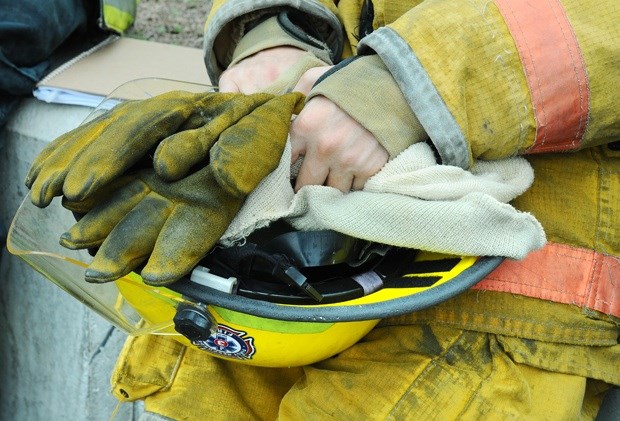The union that represents District of North Vancouver firefighters is raising concern about assistant chiefs in the department who have retired and been hired back on contract.
Double dipping — collecting a pension and salary — has been a sensitive issue with the public in recent years but the union says the problem is more about succession planning.
Assistant chiefs Mike Cairns and Jim Bonneville both retired in July and were hired back on one-year contracts. Former North Vancouver City Fire Department deputy chief Dave Burgess has also been brought in as an assistant chief for one year.
“We just stumbled across it. I don’t know why they kept it a big secret,” said Brian Leavold, president of the International Association of Firefighters local 1183. “It just seems that it’s kind of stifling any progression or succession planning for anyone that might want to be a chief.”
Unionized firefighters fought “long and hard” to get an earlier retirement age because of the high risks and exposure they face in the job.
“You can get a decent pension at 60 instead of staying until 65 because our lifespan is that much shorter than the average working person,” Leavold said. “It’s nothing personal against those guys but eventually someone is going to say “Why do firefighters get to retire at 60 if they’re all coming back and double-dipping anyhow?”
The district should be focusing on training up and promoting current members through the ranks, Leavold said.
Contracted retirees also collect from the pension plan without contributing more to it while on contract, which the union takes issue with.
District of North Vancouver CAO David Stuart said the district has a policy to allow for double dipping but only for exceptional and temporary circumstances.
In this case, the department was hit with two retirements in a short period. Management asked Cairns to stay on to mentor his eventual replacement in fire prevention. Bonneville is in charge of the department’s maintenance section, which could be going through structural changes in the near future and may need continuity, Stuart said.
“What we’re really doing is trying to ensure we have the bench strength that we need in the interim period while we train or bring people up … and hopefully within the year, we’ll have all those positions filled on a regular, full-time basis,” Stuart said.
Complicating matters, the assistant chief positions have been difficult to fill, he added. “One of the union members who applied for the job actually decided after a very short time he didn’t want to stay as an assistant chief so all of a sudden, we had two vacancies,” Stuart said. “We’re in the process of filling those vacancies and we are looking at internal candidates.”
Assistant chiefs have significantly more responsibility but a less flexible work schedule without “a lot of increase” in pay, Stuart said. As for the costs, double dipping actually saves taxpayers money as the contract salaries are a lower cost than full-time ones without benefits, Stuart said. “The fact that someone is collecting a pension for which they and their employer contributed to, whether it was us or somebody else, is quite immaterial to be quite frank.”
The district’s engineering department has “one or two” cases of retirees remaining on contract, Stuart said.
District fire chief Victor Penman did not respond to request for comment by North Shore News deadline.



